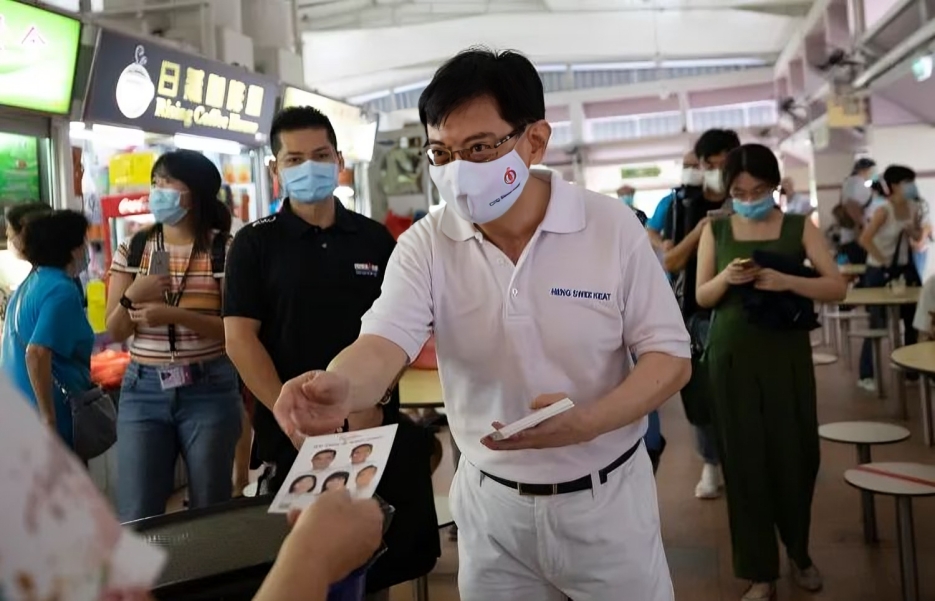- 13:25UN Chief Highlights Morocco's Sahara Initiative for Sahel Economic Integration
- 13:15Kamala Harris Targets Disenchanted Republicans in Key Battleground States Ahead of Election
- 13:00Morocco Bolsters Maritime Influence with IMO Council Vice-Presidency
- 12:45King Charles III's Australian Visit: A Royal Encounter Amidst Growing Republican Sentiments
- 12:25Moroccan Buyers Surge to Second Place in Spanish Property Market
- 12:05Kamala Harris Highlights Trump's Campaign Fatigue in New Attack Ad
- 11:40Stellantis Shifts Gears: Morocco's Automotive Boom Raises Questions for European Manufacturing
- 11:25Elon Musk Increases Financial Incentive for Petition Supporting Constitutional Rights
- 11:15Morocco's Human Rights Council Pushes for Enhanced Protections in Strike Legislation
Follow us on Facebook
Singapore's New Chapter: Lawrence Wong Takes the Helm as Prime Minister
In a historic transition of power, Singapore is set to witness a changing of the guard as Lawrence Wong, the current Minister for Finance and Deputy Prime Minister, prepares to assume the mantle of leadership on Wednesday, May 15th. For the first time in two decades, the city-state will inaugurate a new prime minister, ushering in a fresh era of governance under Wong's stewardship.
At 51 years of age, Wong will succeed Lee Hsien Loong, the eldest son of Singapore's revered founding father, Lee Kuan Yew, who has been at the helm since August 2004. Wong's ascension to the nation's highest office marks a pivotal moment as he becomes only the fourth leader in Singapore's 59-year history as an independent nation.
Like his predecessors, Wong hails from the ranks of the People's Action Party (PAP), co-founded by the elder Lee and the only ruling party Singaporeans have ever known. With this transition, the stage is set for a potential general election in the near future, as observers speculate that polls could be held as early as this year, despite the current government's term not expiring until 2025.
The stakes are high for Wong as a new leader is traditionally expected to secure a strong mandate from the electorate. His primary task will be to maintain the PAP's dominance in the face of an increasingly demanding populace who seek greater participation in governance and a departure from the authoritarian tactics of previous administrations.
Among the pressing issues on Wong's agenda are addressing the rising cost of living, an aging population, a slowing economy, and immigration challenges. Additionally, the PAP has been rocked by a rare corruption scandal, further compounding the challenges facing the incoming prime minister.
Wong's diplomatic acumen will also be put to the test as he navigates the ever-present China-United States rivalry, with tiny Singapore serving as a key ally to both superpowers.

The mild-mannered Wong, a self-described technocrat, emerged as a compromise candidate among the "4G" or fourth generation of leaders in Singapore's political parlance. Initially not considered a frontrunner for the top job, his deft handling of the COVID-19 pandemic as co-leader of the country's task force propelled him into the spotlight, showcasing his competence and ability to connect with the public.
Former PAP lawmaker Inderjit Singh, who served alongside Lee Hsien Loong, acknowledged that Wong faces a formidable task in asserting his leadership credentials, stating, "Anyone in his position will have his work cut out to show that he is indeed the right leader. He has a big task to quickly show that he is indeed the right person who can deliver."
Historically, leadership succession in Singapore has been a well-oiled process, with heirs apparent announced well in advance and groomed for years. However, Wong's predecessor, Heng Swee Keat, unexpectedly stepped aside in 2022, citing his age and admitting he did not feel up to the task, an unprecedented development that has left Wong with a relatively short runway compared to past transitions.
As Singaporeans prepare to embrace this new chapter, Wong's personable demeanor and social media savviness have endeared him to some, particularly the younger generation. However, many also harbor high expectations for the incoming prime minister, reflecting the nation's lofty standards for its highest-paid government leaders.
As Wong himself acknowledged, "Every ounce of my energy shall be devoted to the service of our country and our people." With a mission to "keep this miracle going for as long as I can," the stage is set for Wong to chart a new course for Singapore, one that balances progress with inclusivity and upholds the nation's improbable success story.



